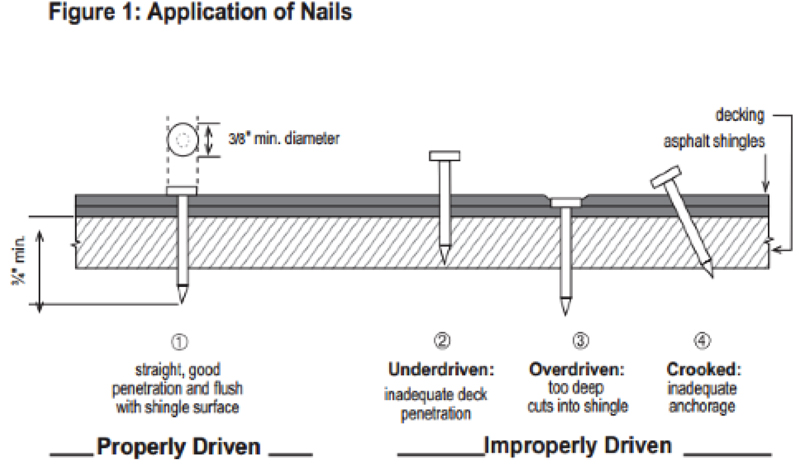Thirteen Iconic Rooftop Movie Scenes

By IKO.
The rooftop is a place to spy, fight, fall in love and revel in freedom. At least, that is how roofs are depicted in movies.
Rooftop scenes have been consistently popular at least since the 1960s, with the rooftop scenes in “Vertigo” (1958), “Mary Poppins” (1964), “The Italian Job” (1969) and “Fiddler on the Roof” (1971). In fact, Screen Rant still considers the opening rooftop chase scene in “Vertigo” to be among the greatest opening scenes of all time.
The trend of setting key movie scenes on roofs is still going strong today. More recent movies have expanded what characters might get up to at the top of a building. In particular, the Marvel Cinematic Universe has set at least one scene on a rooftop in a handful of their most popular movies. These scenes aren’t always about action either.
What is it about the rooftop that sparks directors’ imaginations? Why do they keep returning to the rooftop? It’s a great way to raise the stakes in a chase because a fall from a roof can be deadly. A roof is also a smart way to get some privacy for characters who are falling in love.
Audiences expect some characters, such as Spiderman, to spend some time on the rooftop. Plus, if you set a scene on the roof, you have the opportunity to show off a city skyline or a night sky full of stars, which makes for great lighting.
In big‐budget movies, where every little detail of the film is chosen intentionally, the rooftop should serve as more than a convenient plot device. The rooftop can be a symbol that reflects whatever is going on between the characters.
Do you remember these iconic rooftop scenes from movies? Be careful of spoilers as you read on.
- “The Matrix” Rooftop Scene (1999)
The first installment of “The Matrix” series is full of intense fight scenes. The directors, the Wachowski siblings, set the most intense moment of the film on a rooftop. During this climax, the protagonist, Neo, learns to dodge bullets. Plus, while on the roof, Neo’s love interest, Trinity, kills the agent who is after them.
While Neo dodges bullets, time seems to slow down. The camera rotates perspective, seemingly at normal speed. At the time, it was a groundbreaking effect that was dubbed “bullet time.” According to Looper, in order to create the effect, a 3D model artist had to replicate the roof on a green screen set. The textures had to be added back into the shot digitally.
- “The Bourne Supremacy” Rooftop Scene (2004)
There are more recent iconic rooftop scenes in the Bourne series; but this scene from the third movie does something unique with the rooftop setting.
Jason Bourne, a highly trained spy with amnesia, is trying to discover details about the government program he was trained in before his memory loss. He interrogates CIA head Pamela Landry over the phone while he’s on a rooftop next to her, unbeknownst to her. Bourne reveals that he was watching Landry the whole time, leaving Landry and the CIA staff scanning nearby rooftops, unable to spot Bourne.
Here the directors skillfully use a rooftop not just to raise the stakes, but to create a sense of vulnerability in the all‐powerful CIA characters and heighten our impression of Bourne’s skill as well.
- “The Amazing Spiderman” Rooftop Scene (2012)
Spiderman has enjoyed a long career in front of the cameras, with three recent movie series starring Tobey Maguire, Andrew Garfield and Tom Holland. Garfield is a bit of a middle child, and few fans’ favorite Spiderman. However, one thing his series did get right is a rooftop romance scene.
Audiences expect to see Spiderman slinging his webs from city rooftops and fighting at impressive heights. Having an emotional moment on a rooftop makes sense for the character too. Peter Parker struggles to tell his love interest, Gwen Stacey, about both his web‐slinging heroics and his feelings for her. Perhaps it’s the rooftop setting that helps make him more comfortable. For the audience, the nighttime city skyline helps set the mood.
- “Aladdin” Rooftop Scene (1992)
The original, animated Aladdin uses a rooftop setting to heighten the romance. After all, it makes sense that someone with a magic carpet would bring his love interest to a rooftop for some alone time. However, when Aladdin and Jasmine are enjoying the fireworks from their rooftop perch, Jasmine gets suspicious about the “prince” and his real identity.
- “Batman” Rooftop Scene (1989)
Spiderman isn’t the only superhero who hangs out on rooftops, of course. Batman is also known to take to the roof to observe or to dramatically jump down from. In the 1989 “Batman” movie, director Tim Burton decides to open the film with a rooftop scene of sorts. We follow a family, which is robbed by armed criminals. At one point, the camera dramatically cuts away to reveal that Batman was perched on a nearby roof the whole time, observing.
The criminals also take to the roof to hide and look through their stolen goods. One frets, wondering if Batman is nearby. As the superhero is just a rumor at this point, the other scoffs it off. Of course, Batman is nearby, ready to dramatically jump from one level of the roof to another and start the action.
- “Halloween 4: The Return of Michael Myers” Rooftop Scene (1988)
This movie may be on the older side, but it is one of the few movies that features a residential roof, especially to such great effect.
The “Halloween” series chronicles a masked serial killer, Michael Myers, who hunts his victims on Halloween. The fourth installment focuses on two young girls. One is the daughter of the hero in the original film, Laurie Strode.
When running from Myers, the two girls turn to the rooftop in desperation. The older girl carries the younger and struggles to make it up to the ridge of the roof. She is almost there when she slips on a loose roof shingle, intensifying the tension of the scene.
The “Halloween” series has recently been rebooted, with a new installment called simply “Halloween” (2018). Two follow‐ups are already scheduled. Perhaps one of them will revisit the rooftop as a tension‐building setting perfect for thrillers.
- “The Dark Knight” Rooftop Scenes (2008 and 2012)
Director Christopher Nolan had a unique take on Batman that was more serious and darker than previous versions of the hero. This dark Batman needed a rooftop scene with more weight and conflict. Nolan delivered one in the second movie of the trilogy. During the scene, Harvey Dent and Commissioner Gordon use the Bat-Signal to call Batman. Once he arrives, the three argue about what to do next. The rooftop raises the stakes and gives Batman the opportunity to mysteriously disappear.
Nolan also gave Batman and Catwoman a rooftop scene in the third movie of the trilogy, “The Dark Knight Rises.” While in his first rooftop scene, things seemed to be falling apart for the heroes, this scene has them joining together. Batman joins Catwoman on the roof to save her life and get the chance to interrogate her about what she did with Bruce Wayne’s fingerprints.
- “Skyfall” Rooftop Scene (2012)
You would expect that James Bond has had an intense rooftop chase scene. In fact, he has at least two, one in “Quantum of Solace” (2008) and another in “Skyfall” (2012). Our favorite is “Skyfall,” where Bond has to pursue a villain on a motorcycle over the rooftops of Istanbul. It’s as precarious as it sounds.
Part of the appeal of the Bond movies is their unique, exciting locations that take the viewer across the world. This scene gives you a glimpse of the beautiful architecture in Istanbul. Bond rides over clay tile roofs of the Grand Bazaar. Plus, there is an impressive domed-roof mosque in the background.
Want to see more amazing roofs? IKO is happy to take you on a digital tour to explore unique roofs from across the world.
- “Her” Rooftop Scene (2013)
This sci‐fi film uses the atmosphere of a futuristic city rooftop to give the audience time to reflect on its message. In this world, researchers invented artificial intelligence. Anyone can choose one of these beings to run the operating system for their computer, phone and other devices. Theodore, a lonely divorcee, gets an AI named Samantha. She’s truly conscious, capable of learning and feeling. Soon, Theodore and Samantha fall in love.
Samantha and any other AI develop beyond what humans anticipated for them and decide to leave humans for some mysterious place beyond the physical world. Theodore is left alone again, but this time, seems to be more accepting in the face of his situation. He spends pensive moments on a rooftop with his friend Amy, while a voice‐over reveals Theo has finally forgiven his ex‐wife, Catherine.
- “Eat Pray Love” Rooftop Scene (2010)
Her isn’t the only movie that uses the roof as a place of forgiveness and a symbol of moving on. In “Eat Pray Love,” the main character, Elizabeth Gilbert, gets wise advice from her friend Richard Jenkins on a rooftop in India. Both had searched out an ashram in India to find peace over the pain they had caused others. For Jenkins, he was trying to forgive himself for alcoholism, which he admits to Elizabeth on the roof in a powerful monologue.
Jenkins leaves Elizabeth, advising her to forgive if she can. As Elizabeth meditates on her friend’s struggle, she imagines herself back at her wedding, with the ex-husband she divorced shortly before departing on her trip. The rooftop is the perfect, empty setting for Elizabeth to imagine herself where she needs to be in order to move on with her life.
- “Spider‐Man: Homecoming” Rooftop Scene (2017)
“Spider-Man: Homecoming” is the 16th film in the Marvel Cinematic Universe. Before this movie, the MCU had already dedicated several rooftop scenes to chases, fights, funny moments and romance. But, in “Homecoming,” director John Watts chose to use a rooftop scene for something completely different, a falling out between Peter Parker and his father figure, Tony Stark.
While the rooftop is a convenient spot where we would expect Parker to be waiting, it may also be a symbolic setting for the moment. After all, Parker is trying to become a hero, like Stark, someone who watches over New York from the rooftops. The symbol comes full circle when later in the movie Parker redeems himself by pushing a collapsed roof off himself.
- “The Shawshank Redemption” Rooftop Scene (1994)
“The Shawshank Redemption” includes one of the most famous rooftop scenes of all time. The character Andy Dufresne was convicted of killing his wife and her lover and sent to prison. He and the other inmates are set to work tarring a rooftop. Andy tells a guard how to shelter some of his money from the government. In exchange, he asks for three cold beers for each of his fellow inmates. It sounds simple, but it’s powerful.
Hot mopping a roof is hard and hot work, and was especially so in the 1940s, when the movie was set. That intensity makes Andy’s generous gesture even more powerful. The fact that he doesn’t partake himself is also a curious decision that makes the character more compelling.
- “Coyote Ugly” Rooftop Scene (2000)
Unlike many of the films on this list, “Coyote Ugly” did not receive a positive reception from the critics. One of the most positive reviews on Rotten Tomatoes calls it “distastefully irresistible.” In the film, a young dreamer, Violet Sanford, moves to New York to try to make it as a singer. She takes a job at a bar, Coyote Ugly, to pay the bills.
The saving grace of the film is that LeAnn Rimes wrote the soundtrack. It features several of the singer’s songs, including three big hits — which were released with the movie. In the movie, Violet often heads to the rooftops to compose the songs, at one point taking inspiration from a neighbor who is blasting his own music.
Rooftop Movie Scenes
There are many recent movies that use rooftops as the setting for their most critical moments. Perhaps these movies reveal something about what a roof symbolizes to us. Perhaps your favorite rooftop movie scene reveals something about you. Did we miss any movie rooftop scenes you love?
Are you curious about roofs? You can learn more practical knowledge about your roof in IKO’s Learning Center.
Original article source: IKO




















-2025-xtv-mls-tour-2.png)

Comments
Leave a Reply
Have an account? Login to leave a comment!
Sign In